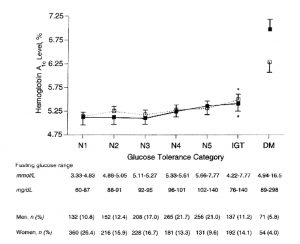What is a Normal Glucose Level

For an ever increasing number of people what is a normal glucose level is a really important question. The number of people diagnosed with heart disease, hypertension, and many forms of cancer, has been fairly steady or even slightly declining in recent years, but the number of people with diabetes continues to skyrocket. For those with diabetes what is a normal glucose level is important because low blood glucose levels can be just as much of a concern as high blood glucose levels due to the simple fact the for the body to operate at optimum levels the blood glucose generally needs to stay somewhere between 60 and 10 mg/dl. Diabetes is the number one cause of abnormal blood glucose levels due to the way it affects the way the body is able to metabolize the glucose that is taken in as food.
Glucose is a type of sugar that the body gets from carbohydrates, sugars, and fatty foods that are consumed. Glucose is important because it is used by each cell of the body as a source of fuel, and when glucose levels fall the body begins to shut down just as surely as a car shutting down when the fuel tank is empty. For most diabetics there is a fine line between too much and too little glucose, and they must check their glucose several times a day in order to balance their medication dosage and diet to keep glucose within healthy levels. All it takes is one misjudgment in insulin dosage, or one forgotten meal or snack to cause blood glucose levels to plummet to the point that the diabetic will lose consciousness and could even die without prompt treatment.
If you or someone you know is a diabetic the only way to keep from suffering from low blood glucose levels or high glucose levels is by staying on top of your glucose checks, keeping your diet right, and following your doctors recommendations. You surely don’t want to be on a long trip when your car runs out of gas, and you don’t want to allow your body to suffer from lack of fuel or from an overload of glucose. Be sure and ask your doctor what is a normal glucose level.

